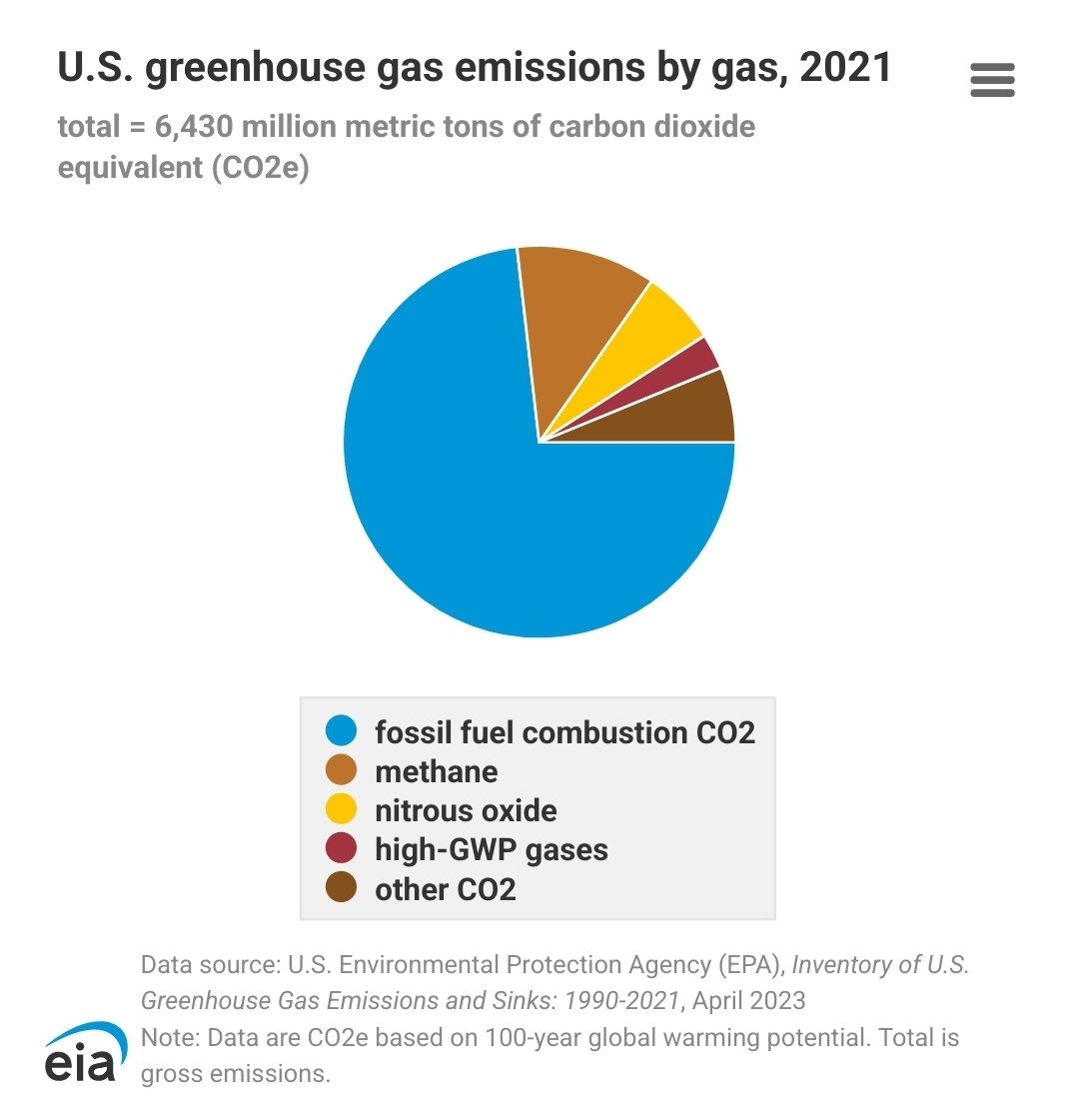A quick search failed to produce an article or study directly comparing the two, so I did each separately.
The livestock sector requires a significant amount of natural resources and is responsible for about 14.5% of total anthropogenic greenhouse gas emissions (7.1 Gigatonnes of carbon dioxide equivalents for the year
Livestock pretty much entirely contribute to climate change inherently via methane and incidentally via use of fossil fuel for transport and specialized machinery. If all of the latter went fully electric, that 14.5% could probably go down to 10% if not 5%…
To call 5 to 14.5% the equivalent of 73% is absolute lunacy that smacks of ideological bias, especially since you don’t mention plant farming, which contributes a lot as well.
Animal agriculture produces 65% of the world’s nitrous oxide emissions which has a global warming impact 296 times greater than carbon dioxide. Raising livestock for human consumption generates nearly 15% of total global greenhouse gas emissions, which is greater than all the transportation emissions combined.
Very much cherry picking data points here: nitrous oxide has a higher impact by volume, but the output is infinitesimal compared to CO² and other harmful substances involved in the extraction, processing and combustion of fossil to the point that it’s still a TINY problem in comparison.
As for this part
15% of total global greenhouse gas emissions, which is greater than all the transportation emissions combined
I would love a source on this
A quick search failed to produce an article or study directly comparing the two, so I did each separately.
Source (source indicated under graph)
(source indicated under graph)
Livestock pretty much entirely contribute to climate change inherently via methane and incidentally via use of fossil fuel for transport and specialized machinery. If all of the latter went fully electric, that 14.5% could probably go down to 10% if not 5%…
To call 5 to 14.5% the equivalent of 73% is absolute lunacy that smacks of ideological bias, especially since you don’t mention plant farming, which contributes a lot as well.
hmm, I didn’t have any issue finding studies that compare the two; here’s one:
https://www.colorado.edu/ecenter/2022/03/15/it-may-be-uncomfortable-we-need-talk-about-it-animal-agriculture-industry-and-zero-waste
Very much cherry picking data points here: nitrous oxide has a higher impact by volume, but the output is infinitesimal compared to CO² and other harmful substances involved in the extraction, processing and combustion of fossil to the point that it’s still a TINY problem in comparison.
As for this part
That’s just a flat out lie.
Source:
The problem I see here is that it measures greenhouse gas emissions, but not “net greenhouse gas emissions”, which is much more important.
For example, “crop burning” contributes to the CO2 emissions short-term, but not long-term. Still they list it as “3.5%” of emissions.